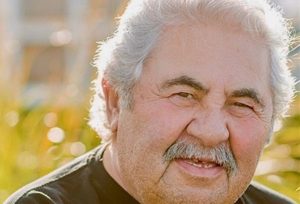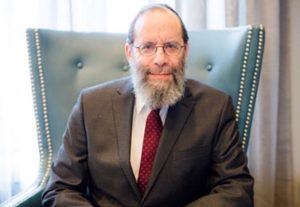A little over a year ago, a group of young Israelis were brainstorming their first venture aimed at bringing Jews and Arabs together. After three hours, discussions were at a standstill and the people in the room were getting tense and argumentative. One of the fellows suggested they take a break and play a game, perhaps backgammon.
Zaki Djemal was skeptical about the suggestion, because once he starts a project, he wants to finish it. But he agreed and the guys starting playing. After six or seven minutes, Djemal noticed the mood in the room had changed – the intense debate was forgotten and everybody was getting along again.
Just then, something clicked in Djemal’s mind. “I saw you could use backgammon to engage people and if it worked for us, maybe we could grow it,” he said.
He got in touch with some Arab friends, community organizers in his hometown of Jerusalem, and together with a handful of his Jewish friends from school, they put together their first event, a gathering of about 150 Jews and Arabs to play backgammon in a venue in Beit Hanina, an Arab neighbourhood in east Jerusalem.
“Most of the Jews had never been to east Jerusalem in their lives,” he said.
That was about one year ago. The event turned out to be a great success. It was the first of 14 such gatherings that ran through the course of the year, culminating in a backgammon tournament two months ago that attracted hundreds of people. The world backgammon champion, a fellow from Japan, learned about the program and flew to Israel to take part, as well.

Altogether, some 5,000 Jews and Arabs from east and west Jerusalem have participated in one of the various activities that have been held in the city, said Djemal, who was in Toronto recently at the behest of Jewish Federations of Canada – UIA to tell his story. During his brief visit to Ontario, Djemal went to Kingston, Kitchener, Guelph and Toronto to discuss the year-old backgammon league, which is called Jerusalem Double, a reference to both east (Arab) and west (Jewish) Jerusalem, and to the roll of the dice, which confers a double move.
In addition to backgammon, a game that can be traced back to the ancient city of Ur, participants enjoyed music, singing, dance performances and other cultural presentations. On one occasion, an automobile garage was converted into a sort of nightclub, with entertainment provided by a Jewish/Arab orchestra featuring a popular Israeli singer. In addition, the participants, including mechanics from both sides, enjoyed a collectible car show, he said.
More than providing an evening’s entertainment, the backgammon league “creates interaction between Jews and Arabs,” Djemal said.
Jews and Arabs live in Jerusalem, but most of their interactions are “transactional,” he said, like shopping at each others’ businesses, or accessing municipal services.
Sponsoring backgammon-centred events brought people into neighbourhoods they would otherwise not frequent and allowed Jews and Arabs to interact in a friendly, non-confrontational environment.
Djemal, who is of Syrian-Jewish descent, said that backgammon proved to be a great ice-breaker. “The fact it was backgammon helped us play down their fears and get them to do something they are comfortable with,” he said, referring to the Jewish participants.
To date, two-thirds of those who have attended the events in east Jerusalem have been Arabs, while two-thirds of the participants in west Jerusalem were Jewish.
Attendance averaged about 300 to 350 participants per event, the majority of whom were men.
READ: ISRAELI HUMMUS BAR OFFERS HALF OFF FOR JEWS AND ARABS WHO EAT TOGETHER
The popularity of the project shows that people on both sides want to interact with one another. Politics were kept out of the programs and, as a result, friendships were formed. People keep in touch by phone, social media and in personal meetings, said Djemal.
The success of the program shows “the powerful role of games,” he continued. “The idea of play and games can have this kind of defusing quality for interaction” and can promote empathy among people.
While the project has proven popular on both sides, there has been some push-back from the Arab side, where there are those who believe that such events “legitimize a reality they don’t see as acceptable,” Djemal said.
Nevertheless, Double Jerusalem has several Arab sponsors and community groups that support it. What’s more, Kulna Jerusalem, the NGO that operates Double Jerusalem, has been able to leverage its success into improving the lives of Arab residents of Jerusalem. By interceding with municipal authorities, it helped solve parking problems for Muslim worshippers attending Friday prayers and it has drawn attention to other needs in the city’s Arab quarters, such as sanitation, Djemal said.
More events are planned for the year ahead, leading to the championship tournament. Djemal, a venture capitalist and founder of fresh.fund, which invests in Israeli startups, believes the success of the project can put Jerusalem on the world backgammon map, leading to the city eventually hosting the world championship.
That would certainly be something Jews and Arabs could feel proud about.







